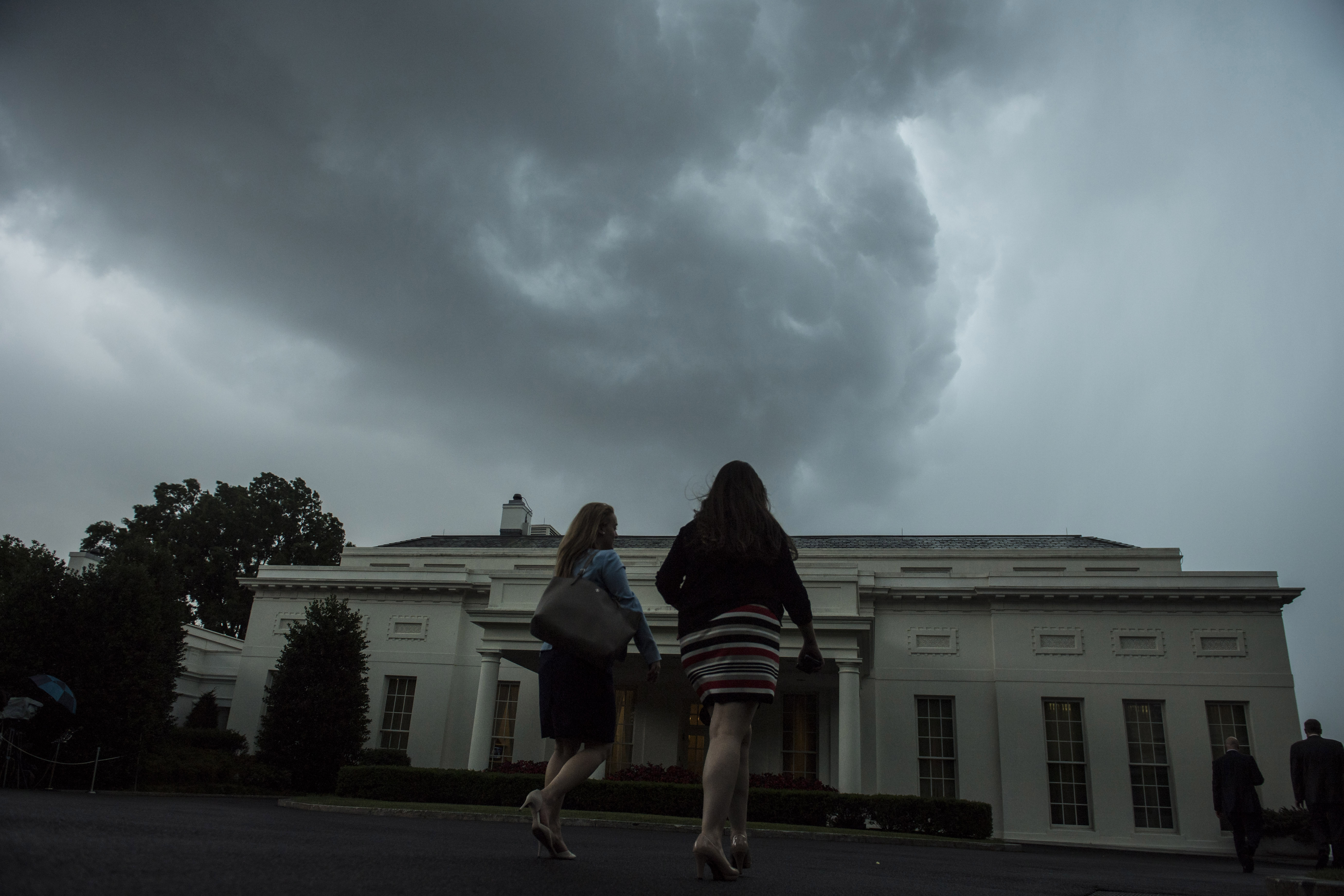 Jabin Botsford | Washington Post
Jabin Botsford | Washington Post
If Van Jones was right, that a moving tribute to the widow of a fallen Navy SEAL in a speech to Congress earlier this year was the moment Donald Trump became president, Trump's news conference on Tuesday was the moment he became a Breitbart contributing editor.
Charlottesville has been a diminishing event for President Trump. He has been unable to summon the moral authority of his office, even though this wasn't a difficult test.
It doesn't take political skill or crisis-management ability to show largeness of heart. Future historians will marvel that one of the most damaging events in the early Trump administration came in a botched response to a neo-Nazi rally.
Over the past few days, Trump hasn't spoken as the leader of the country, or even leader of one party, but as a leader of an inflamed faction. This is why it was almost unthinkable that he would give a unifying talk, as any other president would, at the funeral of Heather Heyer, the young woman slain in the vehicular attack by an "alt-right" protester.
Trump's sensibility is highly unusual for a politician - let alone for the leader of the free world - but very familiar from the Internet or social media. As his news conference showed, his level of argument is at the level of a good Breitbart blogger, or of a Twitter egg of yore. He would absolutely kill it in the comments section of a right-wing Web site or trolling a journalist.
Trump knows some things; covers the weaknesses of his case with sheer aggression; doesn't care about consistency or common sense; wants to play to the base rather than reach the persuadable middle; and feels liberated from any standards of respectability.
Moreover, it appears he's happy for his presidency - to paraphrase adviser Steve Bannon's notorious description of Breitbart - to be a platform for the "alt-right" and in exactly the same sense.
Trump doesn't want his administration actually to be "alt-right" (it is overwhelmingly composed of honorable men and women), and he isn't himself "alt-right." But he is keenly aware of the political energy in the fever swamp. He learned this during his time as a birther and during a campaign when sundry haters, conspiracy theorists, s - - tposters, trolls and bots provided air cover. So he wants to do the minimum necessary to distance himself from it and the maximum possible to associate himself with it.
This would explain his conflicted, otherwise unaccountable reaction to Charlottesville. He initially wanted to maintain some ambiguity. When that was unsustainable, he was willing to read a more specific denunciation of the right-wing groups under duress. But that didn't sit well with him. At his news conference, he repeated his condemnation of neo-Nazis, but praised the menacing torch-lit march on the grounds of the University of Virginia on Friday and maintained there were "fine people" who protested on the "alt-right" side.
In general, Trump's news conference was a tour de force of whataboutism, one of the most important rhetorical tools of the pro-Trump Internet. The "alt-right" marched on Charlottesville? Well, what about the "alt-left"? Robert E. Lee's statue is coming down. Well, what about George Washington?
It's not that these aren't legitimate points. They are. But they were used, as whataboutism so often is, as cover for Trump's failings and to obscure rather than sharpen distinctions.
Charlottesville highlights how the problem with Trump is not the crudity of his expression. This, at times, can be part of his charm and makes him a distinctively powerful communicator. It's the crudity of thought and feeling. These qualities can't be dismissed in an office whose occupant is supposed to represent the nation.
The media coverage of Trump has been consistently catastrophist since January. Whenever there's an outrage, pundits talk as though it's the end of his presidency. This is too dire. So long as Trump has the right enemies, namely the mainstream media and PC culture, there's a sturdy floor to his political support.
But he is slip-sliding toward a crisis of legitimacy. This is the significance of the dissolution of his business councils. It's not unthinkable, should this trajectory continue, that a time could come when some Republican officeholders refuse to visit the White House.
If they wouldn't feel comfortable at the Breitbart editorial offices, why would they want to show up at 1600 Pennsylvania Avenue?
Comment by clicking here.


 Contact The Editor
Contact The Editor
 Articles By This Author
Articles By This Author